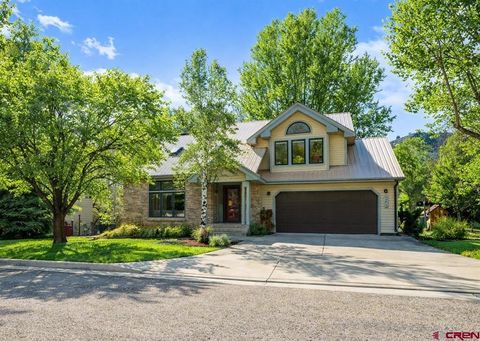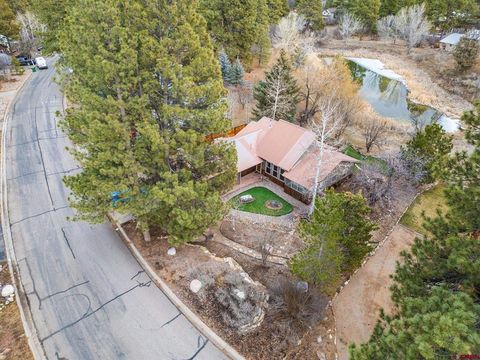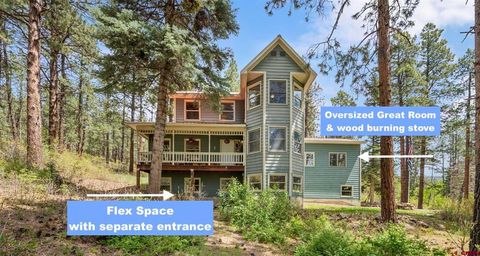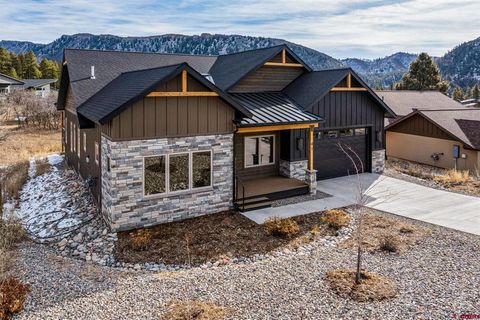Moving to Durango: Cost of Living vs. Denver & Boulder
Thinking of trading the bustle of Denver or Boulder for mountain air, quiet nights, and sweeping views? As a Durango-based real estate agent, I’ve worked with many clients making exactly that switch. One of their biggest questions: How does the cost of living in Durango really compare to Denver and Boulder?
In this guide, I’ll walk you through side-by-side comparisons—housing, taxes, utilities, everyday expenses—and share local insights (and occasional caveats) so you can decide if Durango is a smarter, more balanced choice.
Why Durango? A Few Reflections from a Local Agent
Before we dig numbers, a quick story: a couple I recently helped relocate from Boulder told me they were tired of traffic, tight quarters, and sky-high rents. They wanted more space, better access to nature, and a community with room to breathe. Within weeks, we found them a beautiful home in Edgemont with mountain views and manageable commute times. Their monthly housing cost was less than half of what they paid in Boulder—yet they gained quiet, land, and a lifestyle they’d only dreamed of.
That’s the appeal many people discover when they look at Durango real estate—you don’t just change your address, you often upgrade your quality of life.
Overall Comparison: Durango vs. Denver & Boulder
Cost of Living Index
- Durango vs. Denver: Durango is estimated to be ~6.7 % cheaper overall than Denver per cost-of-living analysis tools. (Best Places)
- Durango vs. Boulder: Boulder is significantly more expensive—about 40.6 % higher in cost of living compared to Durango.
- On housing, Boulder’s housing costs are ~74.4 % more expensive than Durango’s.
So, while Durango isn’t “cheap” (mountain towns rarely are), it offers a relative discount against Colorado’s big metros—especially Boulder.
One caveat: transportation weighs heavily in these comparisons. In Denver, commuting expenses, parking, insurance, and gas often elevate the cost—but in Durango, many people drive less, park free, and enjoy lower road congestion.
Housing & Real Estate: The Big Variable
This is where differences are stark—and where your personal choices matter most.
Buying vs Renting
In Denver and Boulder, housing prices (especially close to the city) can be astronomical. Boulder’s median prices are often well into the multiple millions for premium homes. In Durango, while prices have risen in recent years, many neighborhoods still allow you to get more space, views, or acreage for your money.
A local breakdown:
- In Durango, the median home value (city area) has hovered around ~$600-700K in recent years.
- In Boulder, the cost to replicate similar lot size, views, or custom finishes often jumps dramatically—plus you face fierce competition, tighter lots, and stricter zoning.
- Many buyers relocating from Denver or Boulder find that their budget stretches farther in Durango—maybe you’d get a modest condo or townhome in the city, but in Durango you might get a full single-family home with land and mountain views.
On the rental front, while Durango rents can be high relative to many rural areas, they tend to be lower than comparable housing in Boulder or inner Denver neighborhoods.
Utilities, Maintenance & Hidden Costs
Living in the mountains introduces some added costs:
- Heating / Utilities: Higher heating or energy bills in winter months due to altitude, snow, and insulation demands.
- Maintenance: Snow clearing, slope stabilization, roof snow load, well or septic system upkeep—these are more common in rural or elevated properties.
- Access roads: Some neighborhoods rely on private or steep roads, which require maintenance or plowing.
- Insurances: Fire risk, high wind, and remote location sometimes lead to higher premiums or coverage restrictions.
So although your housing cost baseline may be lower, expect to budget more for these mountain-specific line items.
Everyday Expenses & Lifestyle Costs
Beyond housing, here’s how Durango stacks up:
Food, Groceries & Goods
Groceries, dining, and retail goods in Durango are somewhat higher than the U.S. average (given supply and shipping to a more remote region). According to a local cost-of-living breakdown, living in Durango is ~4 % above the national average.
However, these costs are still typically lower than Boulder or Denver luxury shopping districts or upscale neighborhoods.
Transportation & Commuting
One of the best surprises new residents report: transport costs drop.
- You drive less in Durango compared to commuting through large metro sprawl.
- Parking is cheaper or free in many areas.
- Insurance and upkeep often cost less if you drive fewer miles.
Data shows transportation costs are significantly cheaper in Durango vs Denver
Taxes & Insurance
- State income tax: Colorado uses a flat income tax rate, which means your state rate is consistent regardless of income tiers.
- Sales tax: Durango has a combined sales tax rate around 8.4 % (state + county + city) per local sources.
- Property taxes: In La Plata County, effective property tax rates are relatively low—often in the ballpark of 0.2–0.5% of assessed value.
- Insurance: As mentioned, expect some premium for risk in mountainous or remote locations (fire, wildlife, road hazards).
Healthcare, Education & Services
- Healthcare is accessible in Durango, though specialist services might require travel farther than in bigger metro areas.
- Schools, childcare, and local services are solid, though smaller scale than Boulder or Denver—expect fewer luxury or niche options, but strong community alternatives.
Pros, Trade-Offs & What You Give and Get
What You Gain by Moving to Durango
- More living space, more value — larger lots, views, quieter neighborhoods, and more home features per dollar.
- Lifestyle upgrade — closer to nature, trails, outdoor recreation, clean air, less congestion.
- Community feel — often more cohesion, local involvement, and sense of place.
- Lower transport costs and commute stress — less time stuck in traffic.
What You Trade / Need to Adapt To
- Fewer large-scale amenities — fewer big-city restaurants, arts venues, or specialty shopping.
- Distance to major hubs — travel to Denver or Boulder takes time and cost.
- Seasonal challenges — snow, road closures, high-altitude considerations.
- Potential trade-offs in services — like fewer options in rare specialties, niche schooling, or some luxuries you’d find in metro areas.
Final Thoughts & Guidance
If you’re coming from Denver or Boulder, stepping into Durango often feels like upgrading in terms of life balance—even if you’re trading off some of the metropolitan conveniences. You’ll likely find:
- Lower or better-valued housing (especially considering land, views, or acreage)
- Lower transportation and commuting burden
- A good “middle ground” on everyday costs—higher than many rural places but lower than Boulder’s premium markets
- Added costs for utilities, climate, and remote infrastructure
From a real estate standpoint, it’s one of those rare places where your dollar often goes further—not just in square footage, but in quality of life.
🏔️ Cost of Living Comparison: Durango vs. Denver & Boulder (2025)
| Category | Durango, CO | Denver, CO | Boulder, CO | Local Insight |
|---|---|---|---|---|
| Overall Cost of Living Index (U.S. Avg = 100) | 124 | 133 | 174 | Durango is moderately above national average, but much cheaper than Boulder’s ultra-premium market. |
| Median Home Price (2025) | $675,000 – $725,000 | $720,000 – $780,000 | $1.2M – $1.4M+ | Boulder’s median home price is nearly double Durango’s; Denver’s slightly higher but often with less land and fewer views. |
| Average Rent (2-bedroom) | $2,000 – $2,400/mo | $2,300 – $2,800/mo | $2,800 – $3,300/mo | Rentals in Durango are limited but still 10–25 % less expensive. |
| Property Tax Rate (Effective) | 0.35 % ± 0.1 | 0.55 % | 0.60 % | La Plata County’s property taxes remain among the lowest in Colorado. |
| Sales Tax (Combined) | ≈ 8.4 % | ≈ 8.8 % | ≈ 8.9 % | Comparable rates, but fewer local fees in Durango. |
| Utilities (Gas, Electric, Water) | $220 – $300/mo | $190 – $260/mo | $210 – $280/mo | Slightly higher due to colder winters and rural distribution. |
| Transportation & Commuting | $550/mo avg. household | $680/mo | $710/mo | Shorter drives, less traffic, lower insurance keep Durango costs down. |
| Groceries & Dining | ~4 % above U.S. avg | ~8 % above | ~12 % above | Shipping adds a small premium, but local farmers markets offset it seasonally. |
| Healthcare | Comparable to state avg | Slightly below avg | Slightly above avg | Local care good for general needs; specialized services in Denver/Boulder. |
| Childcare / Education | Midrange to High | High | Very High | Smaller scale but strong public options and active parent communities. |
| Quality of Life Rating | ⭐⭐⭐⭐⭐ | ⭐⭐⭐⭐ | ⭐⭐⭐⭐ | Durango wins for outdoor recreation, pace of life, and community vibe. |





